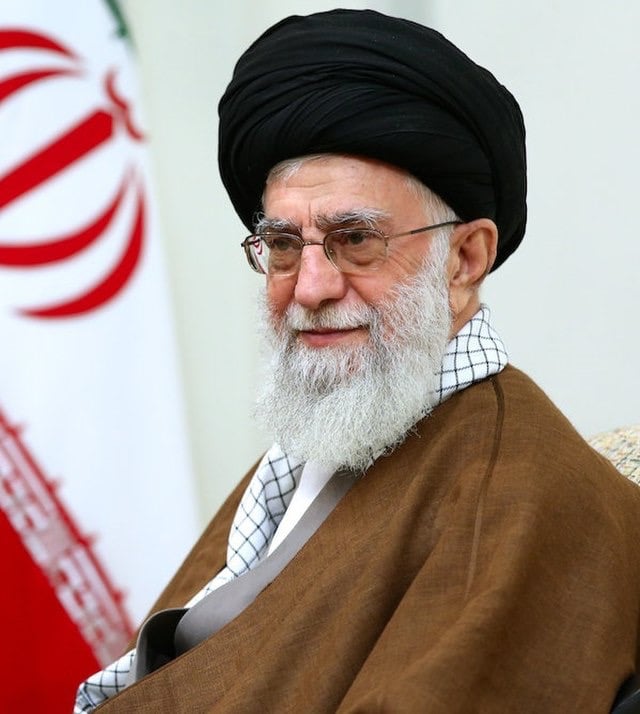In an escalating war of words, Iran’s Supreme Leader Ayatollah Ali Khamenei delivered a fiery rebuke to former U.S. President Donald Trump, calling him a “liar” and dismissing threats of military action over Iran’s nuclear program. In a public address broadcast across Iranian state media, Khamenei declared, “We do not fear any threat,” signaling Iran’s firm stance amid renewed calls by the U.S. to rein in its nuclear activities or face potential airstrikes.
The remarks come as speculation grows around the future of the Joint Comprehensive Plan of Action (JCPOA), the Iran nuclear deal originally signed in 2015 and abandoned by Trump in 2018. With tensions once again rising in the Gulf, the international community is watching closely, fearing that missteps could lead to open conflict in an already volatile region. Let’s dive into the details of what’s going on, what triggered this strong response from Tehran, and what it all means for global peace and diplomacy.
The Spark Behind the Tensions
At the heart of the current diplomatic storm is a stark ultimatum issued by former President Donald Trump: agree to a new nuclear deal—or face devastating airstrikes. Trump’s declaration wasn’t just a political threat; it was a stark reminder of the pressure campaign that began under his administration and continues to cast a long shadow over U.S.-Iran relations.
Iran, meanwhile, has been clear in its position: no deal will be accepted under duress, and national sovereignty is not negotiable. With its uranium enrichment program back in full swing and the Islamic Republic asserting its right to nuclear energy under international law, the divide between Washington and Tehran remains wide. The message from Iran’s leadership has been consistent—negotiations, yes; threats and bullying, absolutely not.
This verbal clash is the latest chapter in a saga that has stretched for decades, driven by ideological divides, military confrontations, and global geopolitical interests. Trump’s latest saber-rattling has once again brought that friction into the global spotlight.
Khamenei’s Bold Statement
In a rare, unfiltered address, Iran’s Supreme Leader Ayatollah Ali Khamenei didn’t hold back. He referred to Trump as a “dishonest man” whose administration was riddled with lies and double standards. “The one who calls for talks is the same who arms our enemies and threatens us with war,” Khamenei said, pointing directly at the perceived hypocrisy of American foreign policy.
Khamenei’s message wasn’t just rhetoric—it was a calculated signal to both domestic and international audiences. Domestically, it was a rallying cry meant to unify Iranians against foreign pressure. Internationally, it was a direct challenge to any assumption that Iran could be coerced into concessions.
The Supreme Leader’s rhetoric reflects deeper sentiments within the Iranian government: distrust toward American promises and a resolve to resist Western intervention. His speech also underscored Iran’s commitment to continuing its nuclear activities for peaceful purposes, despite external threats.
U.S. Threats Over the Nuclear Deal
Donald Trump’s recent comments have reignited fears of a military confrontation in the Middle East. Speaking at a campaign-style event, Trump warned that if Iran does not come back to the negotiating table, “they will face consequences like never before,” hinting at the possibility of airstrikes on key Iranian infrastructure.
These statements echo the maximum pressure policy Trump embraced during his presidency, which involved pulling out of the JCPOA and imposing severe economic sanctions. His rhetoric now, though he is no longer in office, continues to influence Republican foreign policy circles and raises the stakes for any future administration looking to handle the Iran file.
The White House has not officially commented on Trump’s recent remarks, but they have stirred significant concern in both Tehran and European capitals, many of which are still hoping for a peaceful revival of the JCPOA. The threat of war, even if used as a negotiation tactic, risks further destabilizing the region.
Iran’s Defiant Stance
Iran’s leadership, for its part, is doubling down. President Masoud Pezeshkian, newly elected and keen to set a strong tone, echoed Khamenei’s sentiments and called Trump’s comments “irresponsible and provocative.” Iran’s foreign ministry also released a formal statement condemning the threats, warning that any act of aggression would be met with “a decisive and overwhelming response.”
Foreign Minister Abbas Araghchi further clarified Iran’s diplomatic position: the country is willing to return to the negotiating table but only if treated with respect and dignity. “You cannot hold the sword in one hand and the olive branch in the other,” Araghchi said, criticizing what he described as American duplicity.
Iran’s position is not just posturing. It is grounded in a strategy aimed at deterring aggression while preserving national pride. Despite facing crippling sanctions, Iran has adapted by strengthening regional alliances, enhancing its missile capabilities, and maintaining an economy that, though weakened, has shown resilience under pressure.



